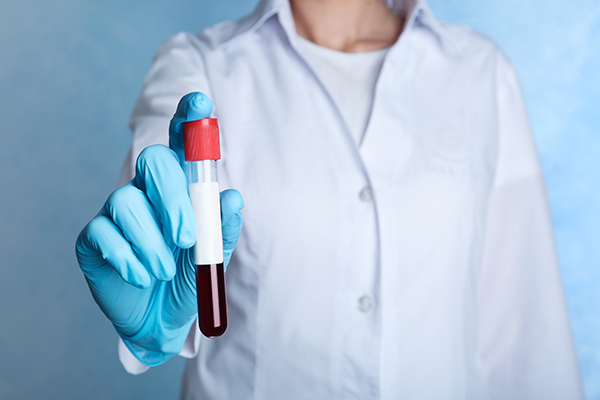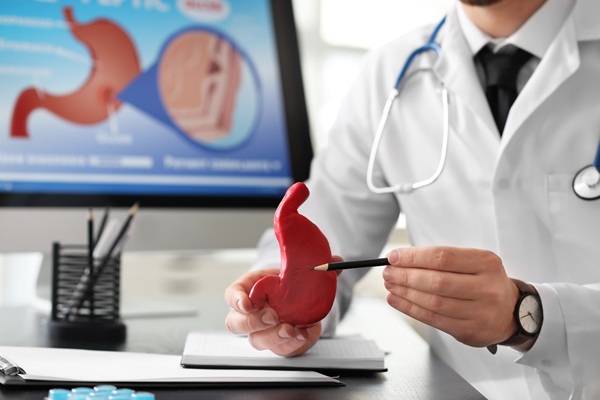Blood Disorders Treated by a Hemotologist

A hematologist is a licensed doctor who specializes in the treatment of blood disorders and disorders of the lymphatic system. Your primary care doctor may recommend visiting a hematologist if they suspect any abnormalities in your blood, or you can visit a hematologist directly if you have symptoms that may indicate a blood disorder. This review provides an in-depth analysis of the various blood disorders that a hematologist can help treat.
Types of blood disorders that a hematologist can help treat
Hematologists can treat a range of blood disorders, including but not limited to anemia, deep vein thrombosis, hemophilia, leukemia, lymphoma, and sepsis. The following is a detailed review of each blood disorder, its symptoms, and how a hematologist may recommend treating each condition.
Anemia
Anemia is a common blood condition that occurs when there are not enough red blood cells in the body. This can cause a reduced flow of oxygen throughout the body, leading to symptoms such as fatigue, pale skin, shortness of breath, and dizziness. There are more than 400 types of anemia. Six general types of anemia are:
- Iron deficiency anemia
- Vitamin deficiency anemia
- Sickle cell anemia
- Hemolytic anemia
- Aplastic anemia
- Anemia of inflation
To determine why there is a lack of red blood cells in a patient’s body, a hematologist may begin by running a series of tests. The underlying cause, whatever it is, will determine the recommended method of treatment. Common types of anemia treatments include iron supplements (specifically to treat iron deficiency) and vitamin B supplements (for low vitamin levels). In some cases, the hematologist may recommend blood transfusions or medications to help induce more blood formation.
Deep vein thrombosis
Deep vein thrombosis is a condition in which a blood clot (or multiple blood clots) form inside veins of the leg(s). This is a serious condition because it could lead to blood clots inside of the lungs. Blood clots related to deep vein thrombosis often dissolve on their own, although they are not always without symptoms. Common symptoms include leg pain, swelling in the leg, warm skin, and tenderness. Patients should visit a hematologist if they have been diagnosed with or suspect that they may have deep vein thrombosis, especially if they are showing symptoms. In the long term, a hematologist may recommend specific devices to treat deep vein thrombosis, such as intermittent pneumatic compression devices. Medications such as anticoagulants may be options.
Hemophilia
Hemophilia is a condition in which blood is not able to clot properly. This can lead to severe bleeding from minor injuries. Common symptoms of hemophilia include excessive bleeding from small cuts and scrapes, excessive bruising from minor injuries, joint pain and swelling, nosebleeds (without an obvious cause), and increased irritability in toddlers. Hematologists can typically diagnose hemophilia after reviewing the patient’s family and medical history and taking various blood tests. Treatment typically includes clotting promoter medications to help reduce excessive bleeding.
Leukemia
Leukemia is a type of cancer that affects blood cells. It is usually caused by an increase of white blood cells in the body. There are three primary types of leukemia,: acute lymphoblastic leukemia, acute myeloid leukemia, and chronic lymphocytic leukemia. Many patients do not have symptoms in the early stages, especially with slow-growing leukemia. When symptoms do develop, they usually include severe fatigue, swollen lymph nodes, unexplained weight loss, higher susceptibility to infections, and easy bleeding and bruising. The treatment that a hematologist recommends depends on the type and severity of the leukemia. Commonly recommended solutions include chemotherapy, blood transfusions, and medical procedures such as hematopoietic stem cell transplantation.
Lymphoma
Lymphoma, also called lymphatic cancer, is a type of cancer that is caused by the rapid growth of white blood cells (known as lymphocytes). The symptoms of lymphoma include swollen lymph nodes, fever, weight loss, fatigue, and abdomen swelling, among a range of other possible symptoms. Every patient’s treatment plan is personalized and unique, and it may include a combination of therapy (e.g., radiation therapy), medications (e.g., bone marrow stimulant or blood transfusions), and surgery.
Our hematologist can help diagnose and treat blood disorders
If you have a referral from your primary care doctor to see a hematologist or if you are experiencing complications that indicate a potential blood-related condition (or a condition with the lymphatic system), then call our office today. Our hematologist and staff can help you get to the bottom of the symptoms that you are experiencing and recommend a treatment plan if you are diagnosed with a blood-related disorder.
Get more information here: https://lindenbergcancer.com or call Lindenberg Cancer & Hematology Center at (856) 475-0876
Check out what others are saying about our services on Yelp: Blood Disorders in Marlton, NJ.
Recent Posts
Gynecological cancer treatments target cancers that affect the female reproductive organs, such as ovarian, uterine, cervical, vaginal, and vulvar cancers. Fortunately, there have been significant medical advances in cancer treatment that have greatly improved patient outcomes, allowing oncologists to adjust therapies to fit each patient's needs and overall health. These targeted treatments work better than…
Gastrointestinal cancer treatment is a broad and evolving field focusing on cancers affecting the digestive tract, including the esophagus, stomach, pancreas, liver, small intestine, colon, and rectum. Each area may involve different approaches based on the cancer's stage, location, and specific genetic factors. Oncologists often coordinate with surgeons, radiologists, and other specialists to create a…
Finding a hematologist near me is an important step when facing symptoms that may indicate a blood disorder or a more serious underlying condition. While not every unusual symptom warrants a referral, recognizing certain signs early can lead to more effective treatment and improved outcomes. Knowing when a hematologist’s expertise is necessary can help patients…
Colon cancer treatment often involves a combination of therapies to destroy cancer cells while protecting overall health. Each person’s treatment plan differs and depends on several factors. Though colon cancer treatment can seem complicated and overwhelming, understanding what to expect can help patients feel more at ease and make informed decisions about their health.Before treatment…


